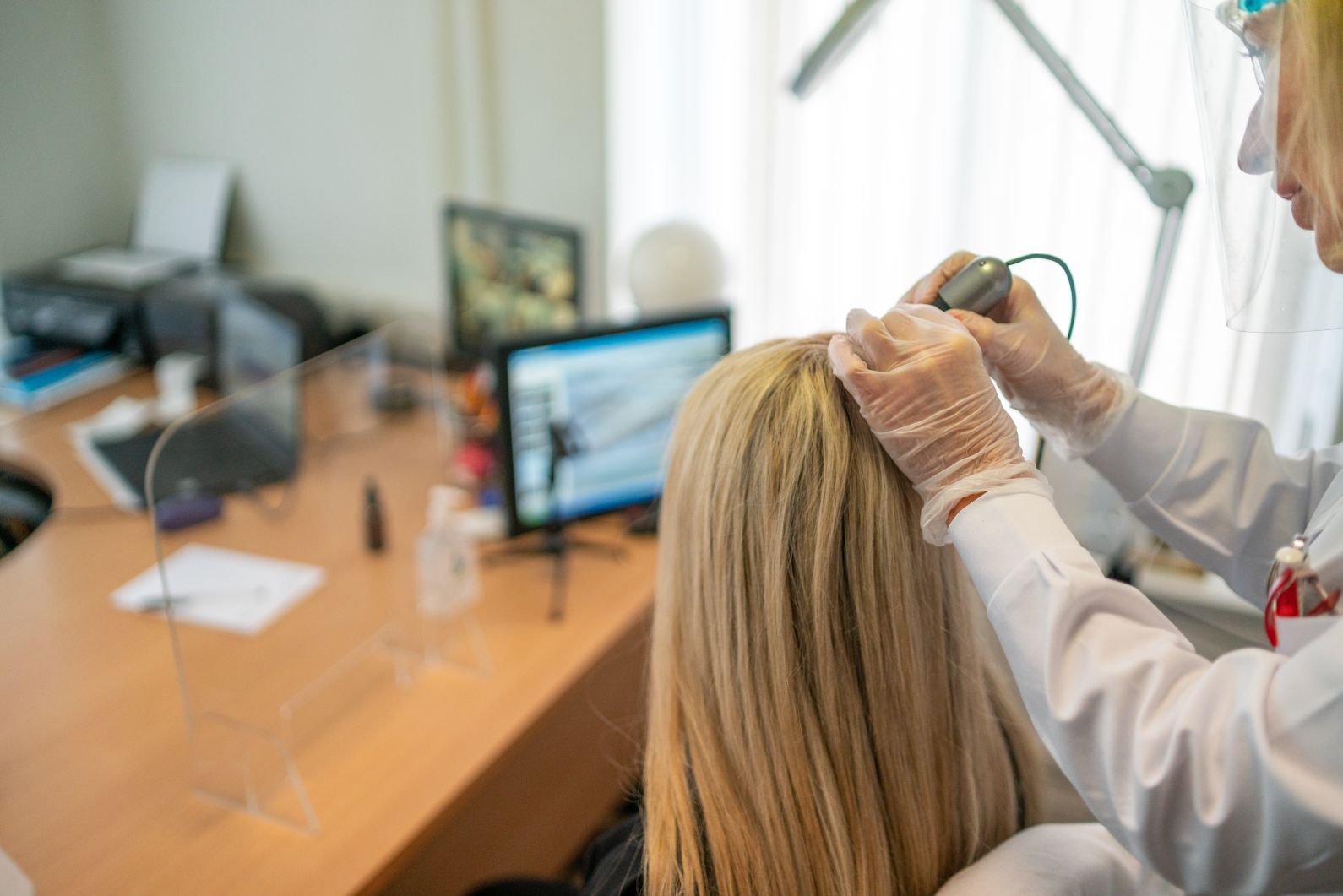It has been almost two years since Covid 19 caused the world to stand still. While the battle against this dreaded virus is still ongoing, more information is known about it. One of the things that came to light is that Covid 19 can result in hair loss.
Many survivors of the virus reported excessive hair shedding months after getting ill. Some of them, including celebrities, used social media to document or share their experience.
Soon enough, experts started investigating, and their findings confirmed that hair loss might be one of the many side effects of Covid 19.
Covid 19 and Hair Loss: What’s the Connection?
In one survey involving 1,700 respondents, over 33% reported that they experienced excessive hair shedding after recovering from the virus.
Another study found that all its 39 participants who contracted Covid 19 developed hair loss following a hair pull test. The study also noted that these individuals experienced excessive hair shedding within 2-3 months after the infection.
Despite these findings, experts admit that more studies are needed to determine the actual relationship between Covid 19 and hair loss. Moreover, it is still unknown if the virus is the direct cause of the excessive hair fall.
For now, scientists point to physical and emotional stress as the possible cause of hair loss and not the virus itself.
According to trichologists and dermatologists, people who recovered from Covid 19 are experiencing telogen effluvium.
A common hair loss condition, telogen effluvium, occurs a few months after a person experiences a stressful event like high fever, surgery, pregnancy or emotional distress. These events cause a shock to the system that sends the body into lockdown mode. In this state, the body focuses on sustaining processes necessary for you to survive.
Here’s the thing:
Hair growth is not considered essential. As they are not receiving the nutrients they need, follicles prematurely enter the telogen stage, or the resting phase, of the hair growth cycle. Eventually, the hair strands fall off – around 300 strands per day for up to 6 months.
How to Treat Covid-19-Related Hair Loss
Experiencing hair loss, regardless of the cause, can be distressing. But you should not fret as telogen effluvium is temporary. Moreover, its effect is reversible, which means that your hair will eventually grow back.
The problem typically goes away on its own, even without treatment. However, it is still best to see a hair and scalp specialist to get a diagnosis.
Remember:
Excessive hair shedding has many causes, from pattern baldness to nutritional deficiency. Moreover, early hair loss treatment is vital in achieving favourable results for most of these issues.
Depending on the severity of your condition, your trichologist or dermatologist may recommend certain medications or procedures. You can also expect them to suggest having a healthy lifestyle and learning to manage stress. These things can help restore the normal hair loss cycle.
It is essential that you stay patient and calm as you wait for the problem to be resolved. Keep in mind, stress can exacerbate the situation, leading to prolonged hair loss.
Furthermore, while your hair will grow back, this will not happen overnight. It will take around 6 months to a year before you notice an improvement in your hair volume.
Not seeing noticeable changes can be frustrating. But you just have to trust the process and follow the specialist’s recommendation.
Now, if you are worried about losing all your hair, don’t be! Telogen effluvium rarely leads to balding. For as long as the trigger is removed, you can expect the shedding to stop and for your hair to grow back in the coming months.
Are you experiencing hair loss after catching Covid 19? Talk to our trichologist to get a diagnosis and an effective treatment plan. Call us today on +353 (0)1 6793618 or leave us a message here.



